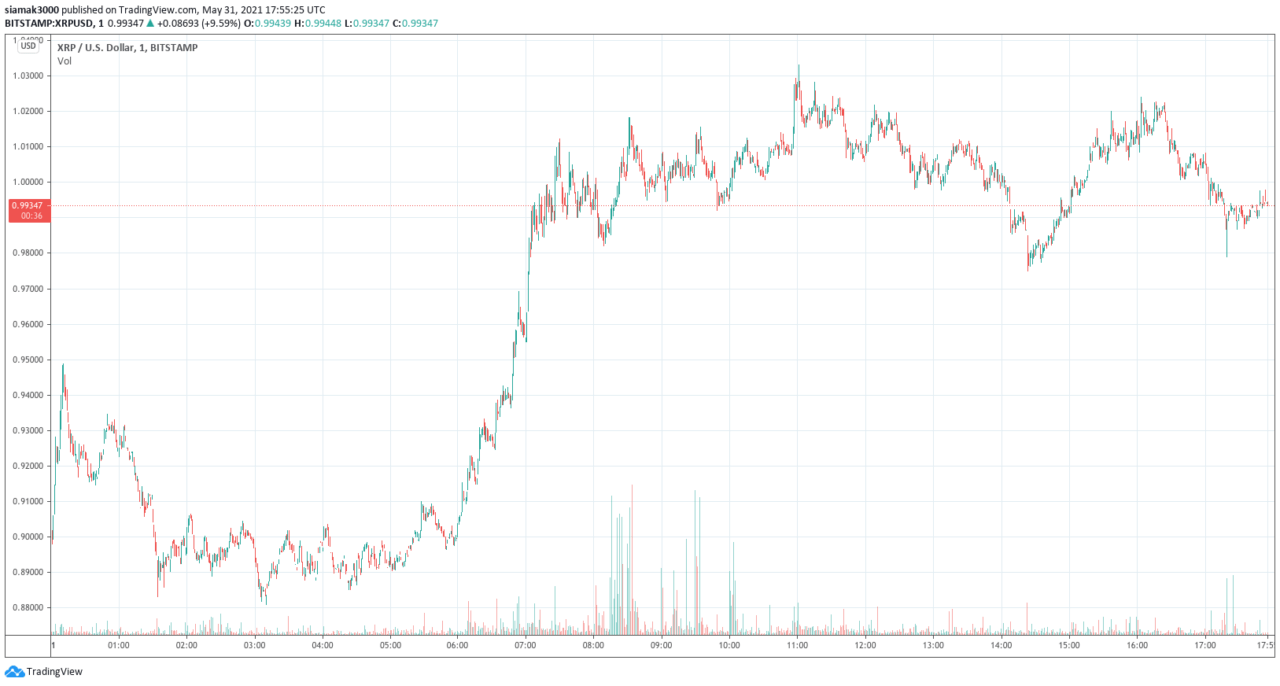On Sunday (May 30), Jeremy Hogan, a partner at the law firm Hogan & Hogan, talked about Magistrate Judge Sarah Netburn’s latest ruling in the lawsuit brought by the U.S. Securities and Exchange Commission (SEC) against Ripple Labs.
On 22 December 2020, the SEC announced that it had “filed an action against Ripple Labs Inc. and two of its executives, who are also significant security holders, alleging that they raised over $1.3 billion through an unregistered, ongoing digital asset securities offering.”
Well, yesterday, the Honorable Sarah Netburn, who is a Magistrate Judge of the U.S. District Court for the Southern District of New York, issued an order that denied the SEC’s motion to compel Ripple Labs (“Ripple”) to “produce all communications constituting, transmitting, or discussing any legal advice Ripple sought or received as to whether its offers and sales of XRP were or would be subject to federal securities laws.”
Below are a few highlights from Judge Netburn’s decision that explain why she ruled the way she did.
- “Ripple asserts that the SEC’s requested communications are protected by the attorney-client privilege, which has not been waived. The SEC counters that Ripple put its attorney advice at issue by asserting a fair notice defense and that the SEC is entitled to ‘test and rebut this defense.’“
- “In asserting this defense, Ripple claims that the SEC’s actions and inactions failed to provide market participants with fair notice that the agency considered XRP a security. In support, it cites to the SEC’s eight- year delay in pursuing enforcement action against Ripple for its alleged securities violations— even after XRP was listed on over 200 cryptocurrency exchanges, billions of dollars of XRP sales transactions had taken place, and Ripple had entered a settlement with the U.S. Department of Justice and FinCEN that described XRP as a ‘convertible virtual currency.’“
- “Ripple counters, however, that its fair notice defense is drawn squarely from the court s ruling in Upton v. SEC, 75 F.3d 92 (2d Cir. 1996). There, the defendant articulated a “ fair notice” defense that was substantively different from ‘good faith.’“
- “The Court takes no position about whether Ripple’s pleaded defense is cognizable or if it will prove meritorious. I reach only the limited question of whether Ripple put its subjective state of mind or advice of counsel at issue merely by raising the defense, thus waiving its privilege. I conclude it did not.“
Shortly after Judge Netburn issued her order, American attorney Jeremy Hogan, who has provided invaluable commentary to the XRP community throughout this case, took to Twitter to explain why this decision is so important.
The good news for XRP is that if the SEC fails to beat Ripple’s “fair notice” defense, it could make it more likely for the SEC and Ripple to come to some sort of settlement that could provide XRP with sufficient clarity for U.S. crypto exchanges to be able to re-list XRP.
This seemingly small but important victory for Ripple Labs seems to have cheered up XRP investors. According to data by TradingView, currently (as of 17:55 UTC on May 31), on crypto exchange Bitstamp, XRP is trading around $0.9959, up 11.63% in the past 24-hour period.
DISCLAIMER
The views and opinions expressed by the author, or any people mentioned in this article, are for informational purposes only, and they do not constitute financial, investment, or other advice. Investing in or trading cryptoassets comes with a risk of financial loss.










